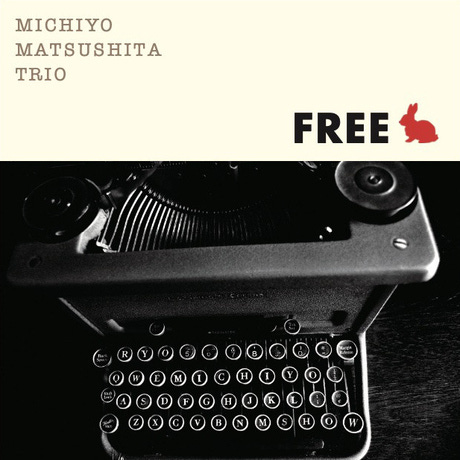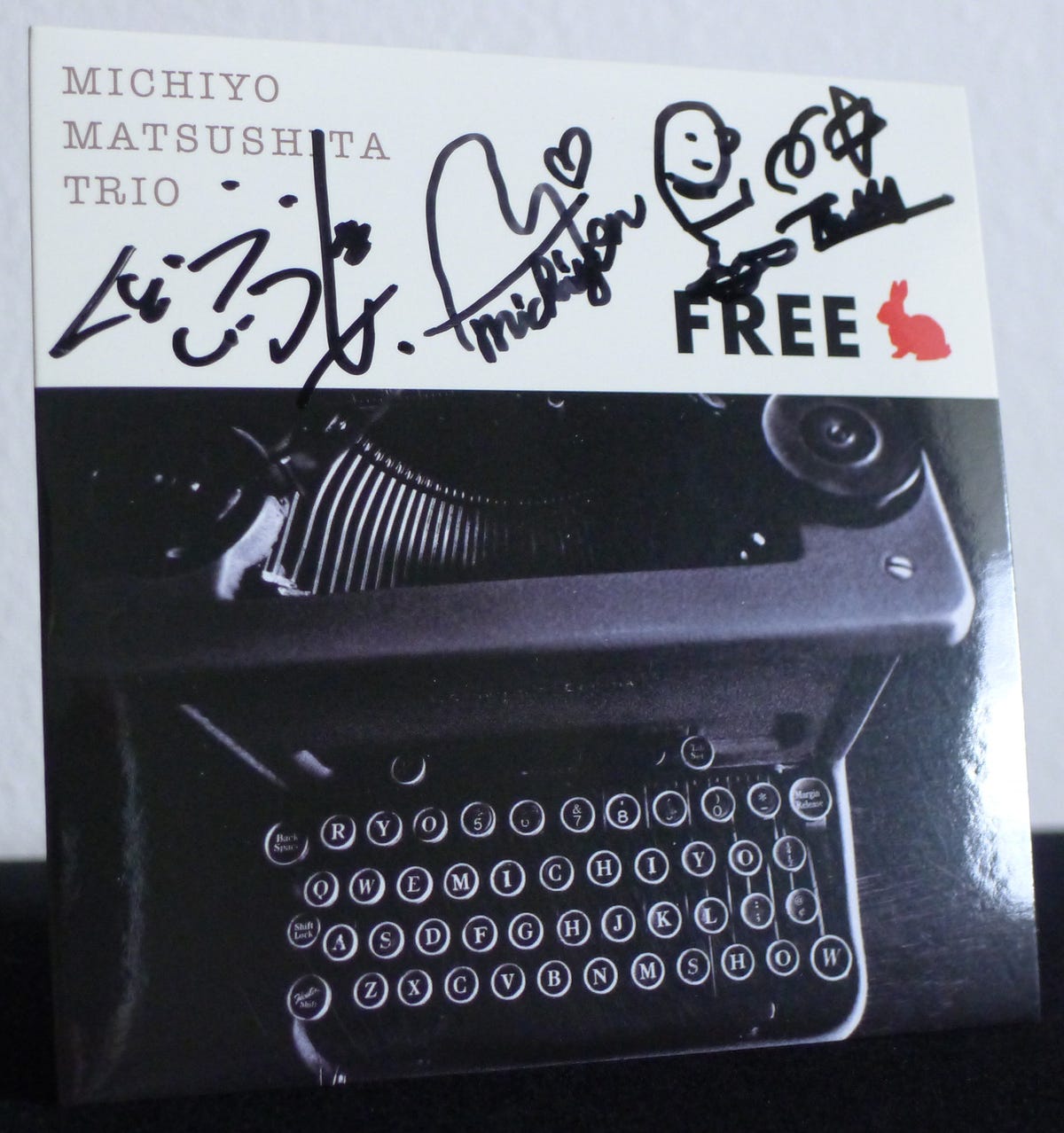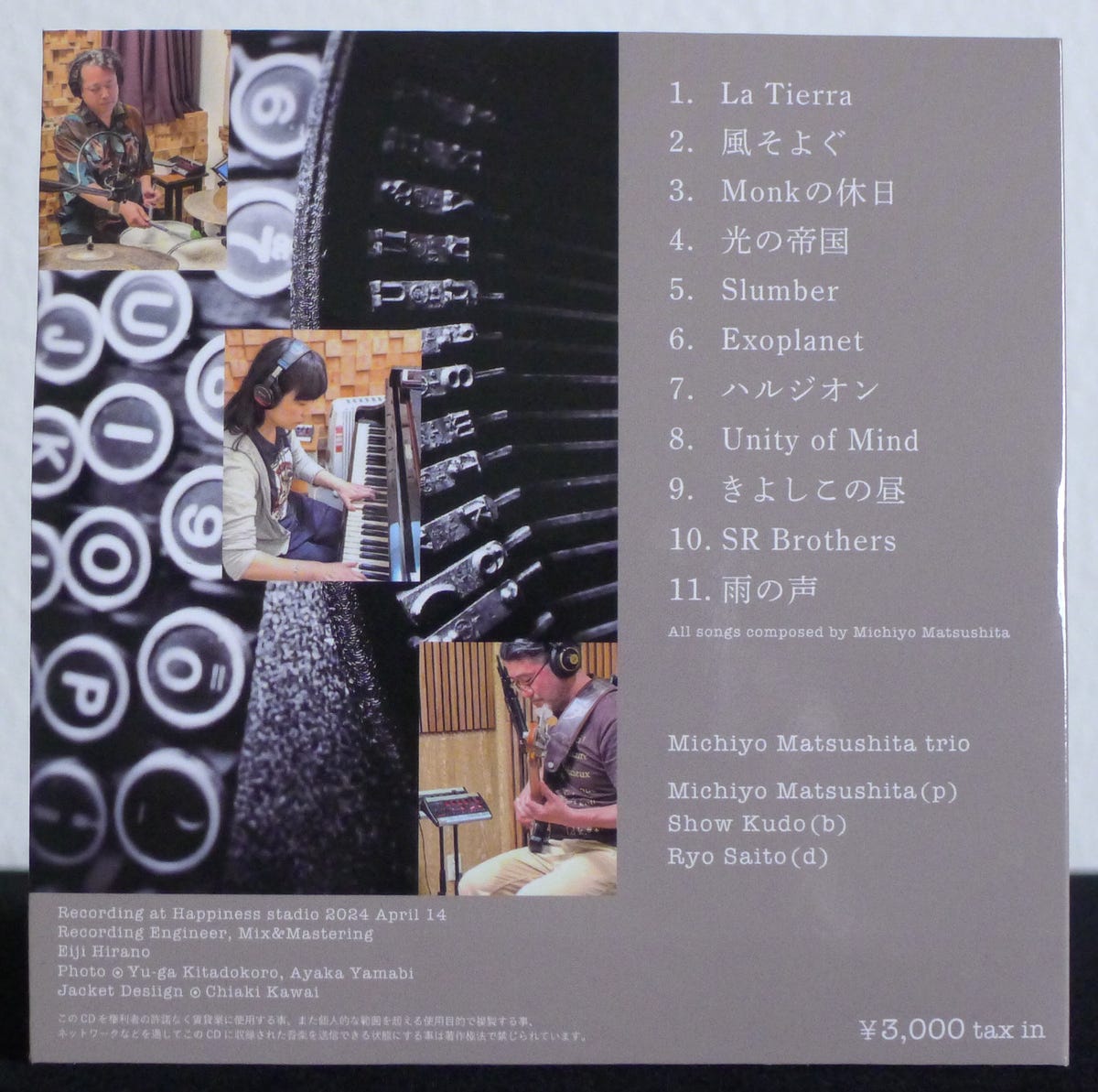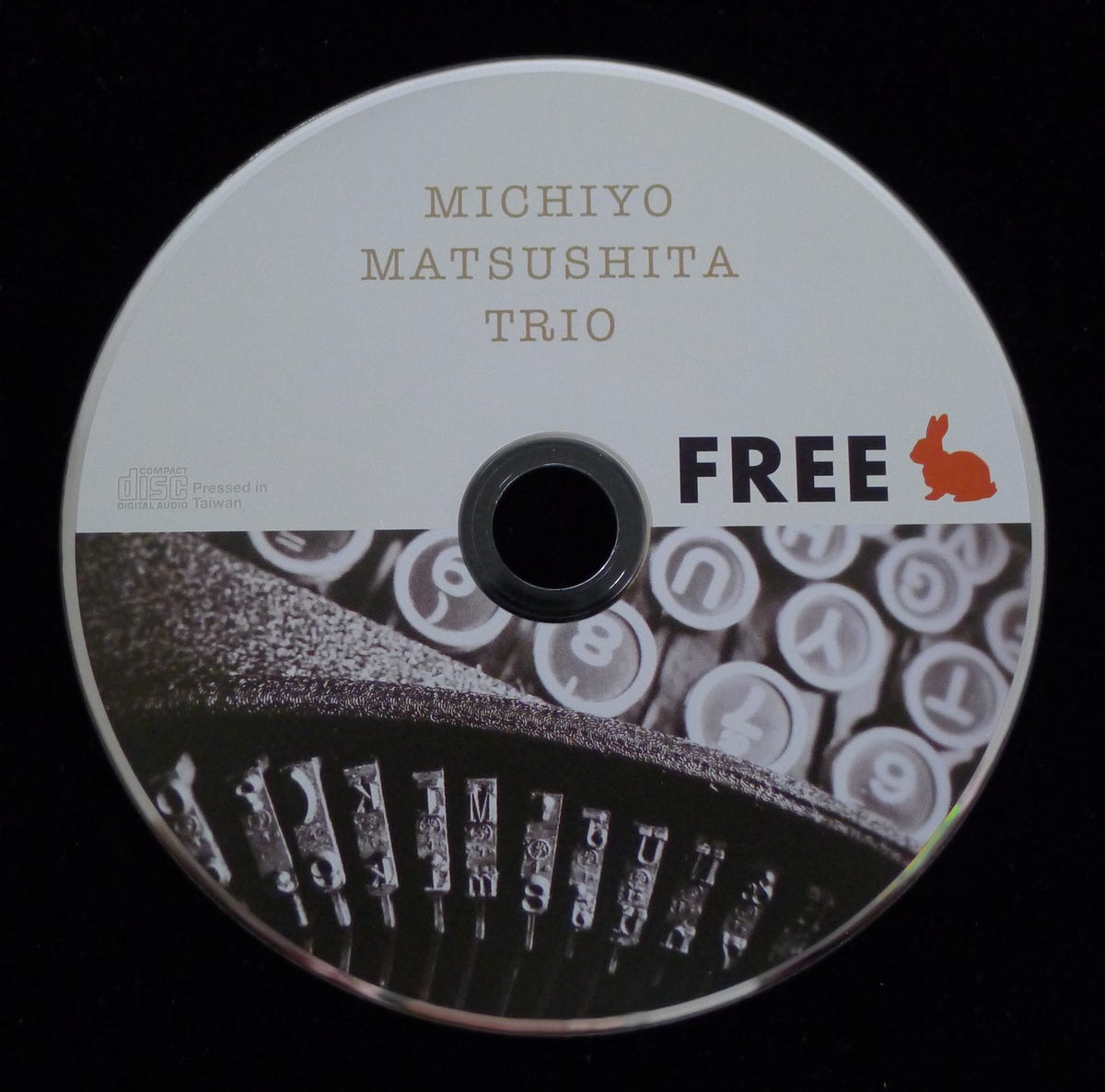Michiyo Matsushita Trio: Free
Free is the third album from the Michiyo Matsushita Trio. With the members active in their individual recording and playing schedules in Japan and internationally, they have continued to play together regularly as the Michiyo Matsushita Trio. Still, it had been 13 years since their previous 2011 release Prayer for Peace (and half that since Matsushita’s 2018 solo album Sally Gardens), so fans of the trio were pleasantly surprised to hear of this new offering coming out last year. As with the previous trio albums, old friends and long-running members Show Kudo on bass and Ryo Saito on drums join pianist Michiyo “Michiyon” Matsushita.
Free is an 11-track, 57-minute album full of Matsushita’s original music. The rhythms of jazz swing, Latin (including Spanish and Brazilian), smooth R&B, funk, and club jazz are the framework upon which Matsushita’s imaginative music is built and which the trio brings to life through their intuitively locked-in playing.
About the title Free: While brief and open to interpretation, the short and sweet album title may present some puzzles. First and easiest to clear up, no, this album is not free of charge. Though it was funny to see, at the trio’s live shows, a stack of these CDs for sale with the label Free prominently displayed on top, and wonder how to take the word printed right there on the cover — (wait, are these actually free for the taking? No, Matsushita explained after a laugh, they cost 3000 yen each!
Also, as another point of possible confusion, the type of music on this album is not free as in designating the genre of free jazz. These compositions are all well-structured original ideas from Matsushita, embodying her imaginative personality and dedication to writing catchy music. The songs are wonderfully arranged with a solid jazz backbone enhanced by cool fusion stylings, laid-back beats, Wayne Shorter-esque innovation, and Horace Silver-like Latin/swing conjunctions and switch-ups.
Listening to the album conveys the meaning of Free as used in the sense of free-minded, free-spirited, free-flowing, free-style. With dynamic accents, tempo shifts, and emotional contrasts, Matsushita’s compositional expressions are brought forth through the excellent playing of the trio and their personal solo statements.
From the naming and structure of the first track, La Tierra, one can’t help but draw the intended parallels between this and Chick Corea’s famous song La Fiesta, with both songs featuring tension-building minor-key rhythmic vamps leading to surging highs with colorful major-key fireworks. As this song and the rest of the album show, Matsushita’s compositions do draw from legendary influences (this is a large part of jazz, after all). Yet, these are foundations, not imitations, and this album is full of Michiyo Matsushita’s own conceptions in a variety of styles.
Continuing from La Tierra, track #2 “Kaze Soyogu” (風そよぐ, the wind rustles) shifts gears and lays back with a chill club jazz groove. #3 “Monk no Kyujitsu” (Monkの休日, Monk’s holiday) is a slow swing with a plucky off-kilter personality paying homage to the great Thelonious Monk. #4 “Hikari no Teikoku” (光の帝国, the empire of light) is regal, classy, and smooth. #5 “Slumber” is a long-time live favorite with an addictive sprinkling-notes theme, funky sections, and exciting changes.
#6 “Exoplanet” is a darker hue of swing/Latin bop jazz construction built for Matsushita’s solo piano improv. #7 “Harujion” (ハルジオン, spring fleabane, a white and yellow flower) is a quiet ballad, sweet and subtle. #8 “Unity of Mind”, like “Exoplanet”, has swing/Latin sections like Horace Silver, with intense hard bop rhythms and modern touches. #9 “Kiyoshi no Hiru” (きよしこの昼, silent day) is a medium-tempo 4/4 swing, light and nimble, with a straight-played chamber-like classical or march feel, with jazz standard constructions a la the Modern Jazz Quartet. The dynamic #10 “SR Brothers” (S and R for Show and Ryo) is an uptempo outing with adventurous time-meter shifts between pulse-racing swing and laid-back funk grooves (and, a very short free jazz section, there it is!). Lastly, track #11 “Ame no Koe” (雨の声, voice of the rain) is a meditative ballad where the ambient sounds of water linger in the beginning and end of the piece to bookend a folky Ghibli-hued warmth, leaving us free to imagine what comes after this happy farewell.
Free by Michiyo Matsushita Trio
Michiyo Matsushita - piano
Show Kudo - bass
Ryo Saito - drums
Released in 2024 on MUGI Record as MUGI-2408.
Names in Japanese: 松下美千代 Matsushita Michiyo 工藤精 Kudo Show 斉藤良 Saito Ryo
Related Albums
Links
Audio and Video
“La Tierra” (track #1) — excerpt:





